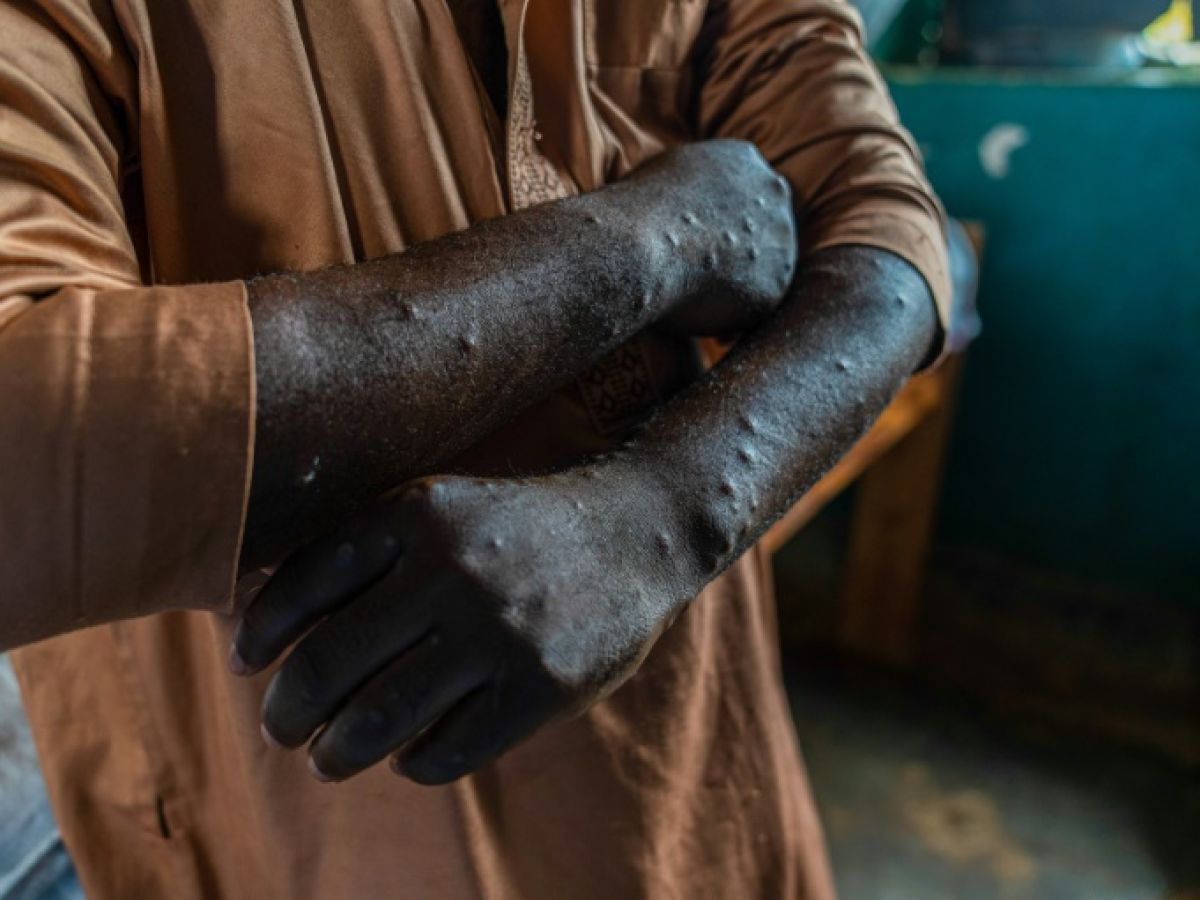A first case of the new variant of mpox has been identified in France, health authorities announced on Monday, January 6, 2025, who want to be reassuring about the risk of infection for the general population but reiterate the preventive measures for target audiences. "The Ministry of Labor, Health" was informed "of a first human case of mpox clade 1b on the national territory, in Brittany. The recommended management measures have been put in place", the Ministry of Health told AFP in a press release, confirming information from the regional daily Ouest-France. "The reported case concerns a person who had not travelled to Central Africa, an area in which the different clades of mpox viruses have been actively circulating for several months, including clade 1b.", the press release states.
"The occurrence of this case in France was able to be quickly detected thanks to the surveillance system in place"
"However, this person was in contact with two people returning from Central Africa; investigations are underway to find the origin of the contamination and identify all the contact persons.", he adds. The ministry recalls that four countries in the European Economic Area (EEA) have recorded cases of clade 1b mpox since this summer: Sweden, Germany, the United Kingdom and Belgium.
The risk of infection by Monkeypox clade I for the general population in France and Europe is considered low by the European Centre for Disease Prevention and Control (ECDC), the press release further notes.
Read alsoMonkeypox: why does this new strain of mpox worry the WHO?
"But sporadic cases, linked to countries with more intense viral circulation, can occur. The occurrence of this case in France was able to be quickly detected thanks to the surveillance system in place.". According to Ouest-France, the woman who tested positive for MPOX clade 1b is domiciled in Brittany and was diagnosed at the Rennes University Hospital. She "would be doing well", the daily said without citing a source.
MPOX is characterized by skin lesions, such as pustules, high fever and muscle pain. First identified in the Democratic Republic of Congo (DRC) in 1970, the disease was long confined to about ten African countries. But in 2022, it began to spread to the rest of the world, particularly developed countries where the virus had never circulated.
In 2024, 215 cases of MPOX, all due to clade 2b, were reported to Public Health France
There are two concurrent outbreaks, one caused by clade 1 in Central Africa, affecting mainly children, and another by the new variant, clade 1b, which is affecting adults in another region, in eastern DRC, and in neighbouring countries. In November, the World Health Organization (WHO) decided to maintain its highest alert level for the outbreak, due to the increase in cases and countries affected.
The Democratic Republic of Congo (DRC) is by far the country most affected by this virus, formerly known as "monkeypox". In 2024, 215 cases of mpox, all due to clade 2b, were reported to Public Health France, with an average of 3 cases reported per week at the end of the year. Health authorities are reiterating the importance of vaccination for high-risk groups - including men who have homosexual relations with multiple partners, or sex workers - and as a reactive measure for contact cases. People with close ties to Central African countries where the mpox virus is actively circulating can also be vaccinated, the authorities also indicate.

